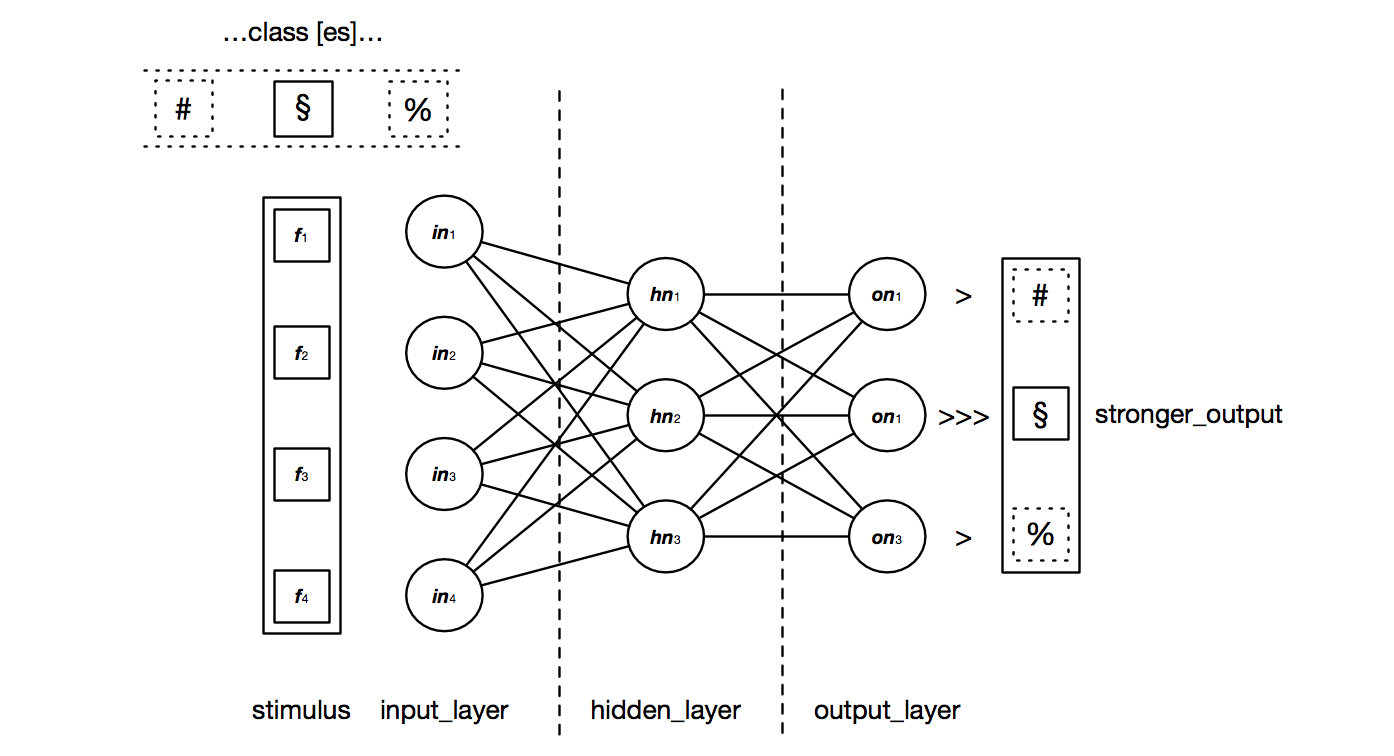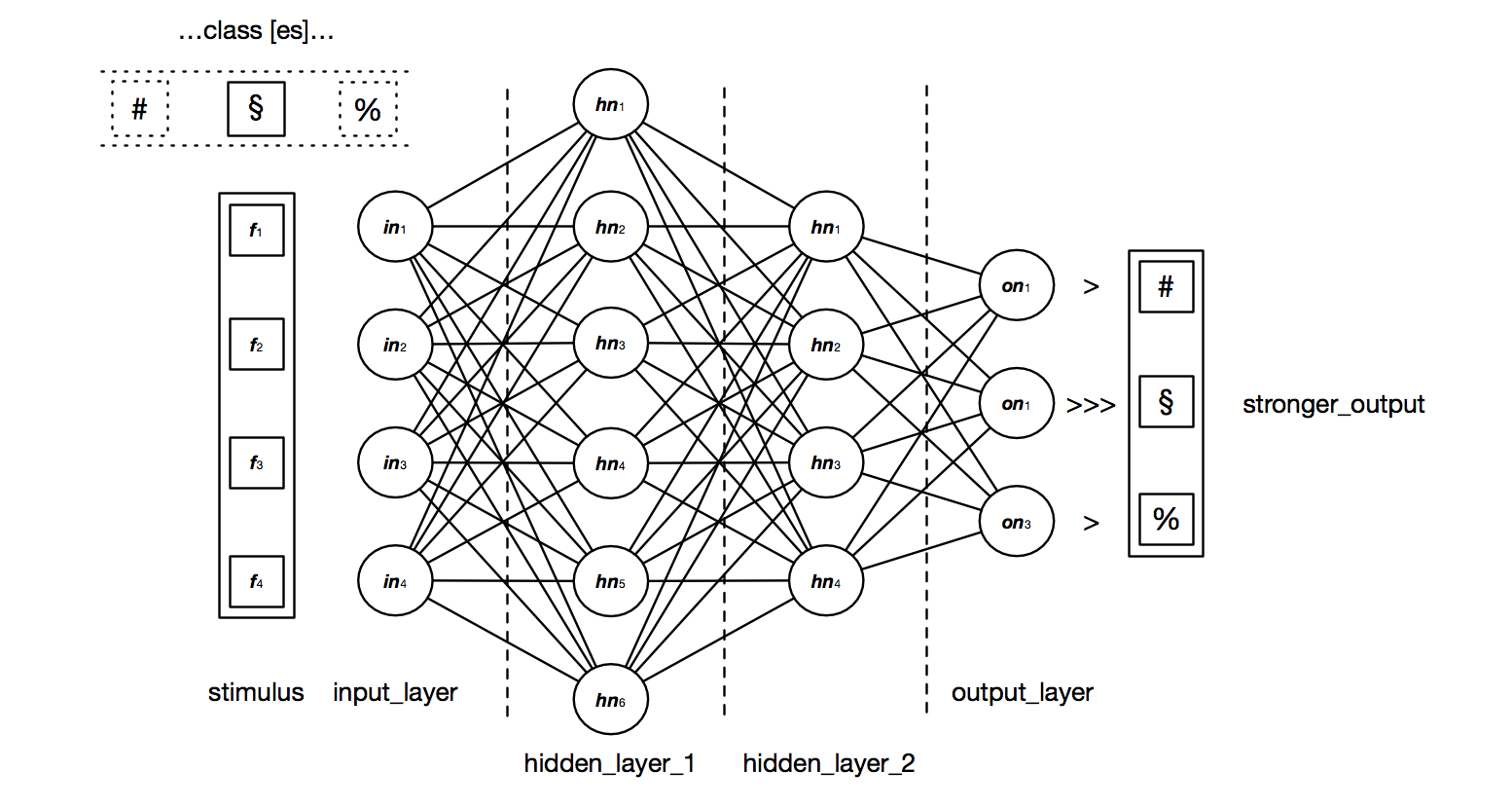A single / multi level perceptron classifier with weights estimated from sonar training data set using stochastic gradient descent. Recently I added back propagation algorithm over multilayer perceptron network. The implementation is in dev. Planned features:
- complete future features XD (see above)
- find co-workers
- create a ml library in openqasm (just kidding)
- brainstorming / devtesting other an models
2017-10-04: Introduced Recurrent Neural Network (Elman Network) with "learn to sum integer" task. Big refactoring in code (working on)
2017-08-08: Introduced multi layer perceptron network definition with parametric number of hidden layer and neurons. Back propagation algorithm with different transfer function actived - I wanna thank you dakk because I was truly inspired by your code.
2017-08-01: Introduced validation package and k-fold cross validation.
2017-07-31: I started working on mlp branch for MLP + back prop. It doens't work yet but...I push first commit after some exp in dev. I delete dev because of some structs optimization.
2017-07-31: we started working on k-fold validation.
To run a simple test just open a shell and run the following:
git clone https://github.com/made2591/go-perceptron-go
cd go-perceptron-go
go get github.com/sirupsen/logrus
go run main.go
You can setup a MultiLayerPerceptron using PrepareMLPNet. The first parameter, a simple []int, define the entire network struct. Example:
- [4, 3, 3] will define a network struct with 3 layer: input, hidden, output, with respectively 4, 3 and 3 neurons. For classification problems the input layers has to be define with a number of neurons that match features of pattern shown to network. Of course, the output layer should have a number of unit equals to the number of class in training set. The network will have this topology:
- [4, 6, 4, 3] will have this topology:
- test methods
- mathgl for better vector space handling
- some other cool neural model XD

